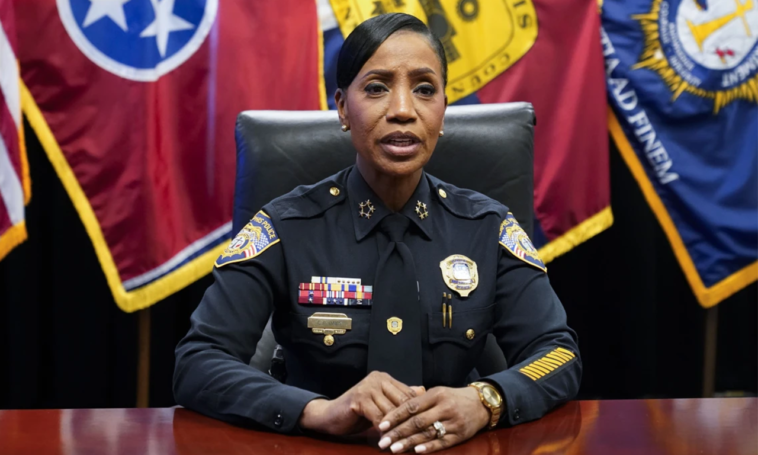Memphis police chief to serve in interim role under new mayor. The unfolding events in Memphis present a nuanced narrative that encapsulates the intricacies of policing, public sentiment, and the quest for reform.
Mayor Paul Young’s proposition to have Cerelyn “CJ” Davis serve as interim chief amid the scrutiny surrounding her leadership signifies a pivotal moment in the city’s ongoing conversation about law enforcement practices and accountability.
The decision to postpone the vote on Davis’s reappointment by the Memphis City Council suggests a community at a crossroads, grappling with contrasting views on how to address the challenges within the police department. Reports.
The delicate balance between supporting Davis, who was initially appointed by former Mayor Jim Strickland, and responding to heightened calls for reform underscores the complexity of the situation.
The tragic death of Tyre Nichols has been a catalyst for introspection and debate. Nichols, a Black man, fell victim to excessive force during a traffic stop by the Scorpion unit, a team formed under Davis’s watch.
The incident, captured on camera, laid bare the deep-seated issues within the Memphis Police Department, leading to the disbanding of the controversial Scorpion unit
However, the aftermath exposed broader challenges. The swift firing of seven officers involved in Nichols’s death did not shield Davis from criticism. Questions about the overall increase in crime, including a record number of homicides and a surge in auto burglaries, fueled discontent among citizens and activists. The call for Davis’s removal gained momentum as the community grappled with an urgent need for systemic reforms.
The U.S. Department of Justice’s investigations into the Memphis Police Department added another layer of complexity. The scrutiny into the use of force, arrest procedures, and the broader patterns and practices of the department underscored the national significance of Memphis in the ongoing discourse on police accountability.
These investigations are not only about the specific case but also about addressing systemic issues that have long plagued law enforcement.
Mayor Young’s proposal to appoint Davis as interim chief is a strategic move to evaluate her impact on critical aspects of community well-being, including crime reduction, policy reform, and community engagement.
The mayor’s expressed belief that Davis is the right person for the job, coupled with the commitment to reassess based on results, reflects a pragmatic approach to leadership evaluation.
The delicate balance between supporting Davis, who has the endorsement of the Memphis chapter of the NAACP, and addressing the concerns of activists and citizens highlights the inherent tension in navigating the path to reform.
The Nichols case exposed not only instances of police brutality but also broader issues of accountability, transparency, and community trust.
The $550 million lawsuit filed by Nichols’s mother against Davis, the city, and the former officers adds a legal dimension to the challenges facing Memphis. The lawsuit alleges that Davis allowed the Scorpion unit’s aggressive tactics to persist despite warnings. It places accountability not only on the individuals involved but also on the leadership overseeing law enforcement practices.
As Memphis embarks on this period of assessment with Davis as interim chief, the city becomes a focal point in the national conversation on police reform. The outcomes of this evaluation will reverberate beyond Memphis, influencing discussions on how communities grapple with systemic issues in law enforcement and the imperative for change.




Join the Community and Be a Part of the Conversation
You must be logged in or registered to post a comment.